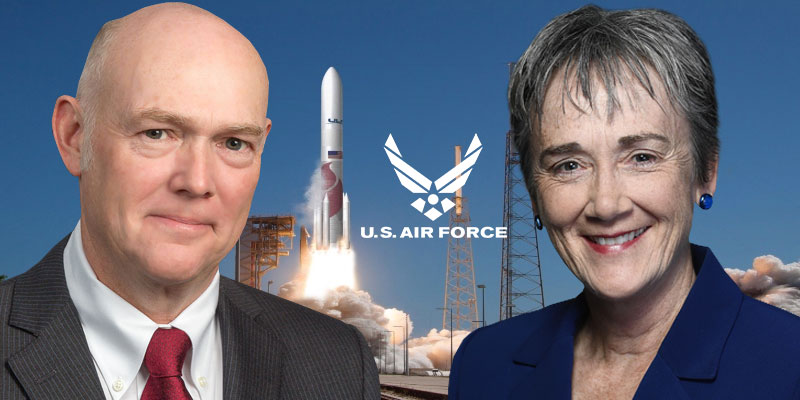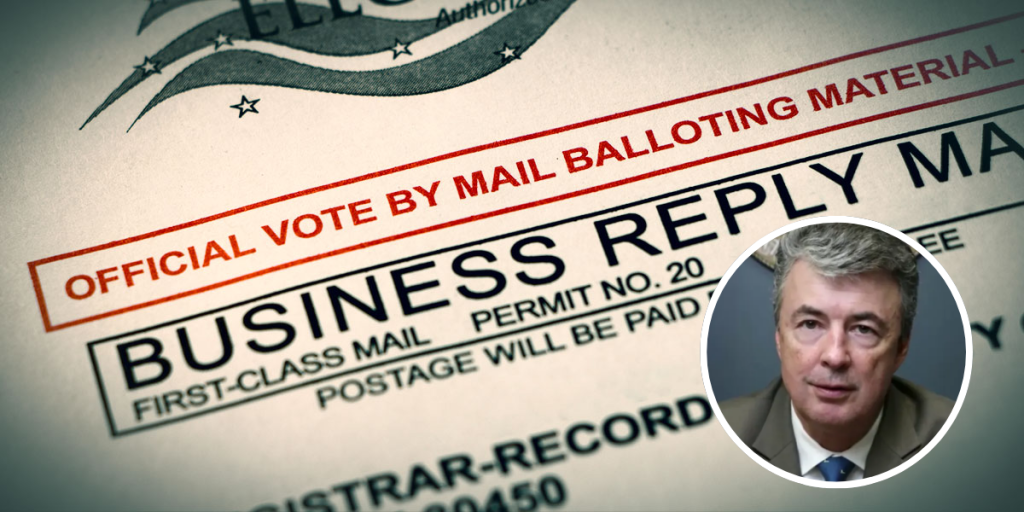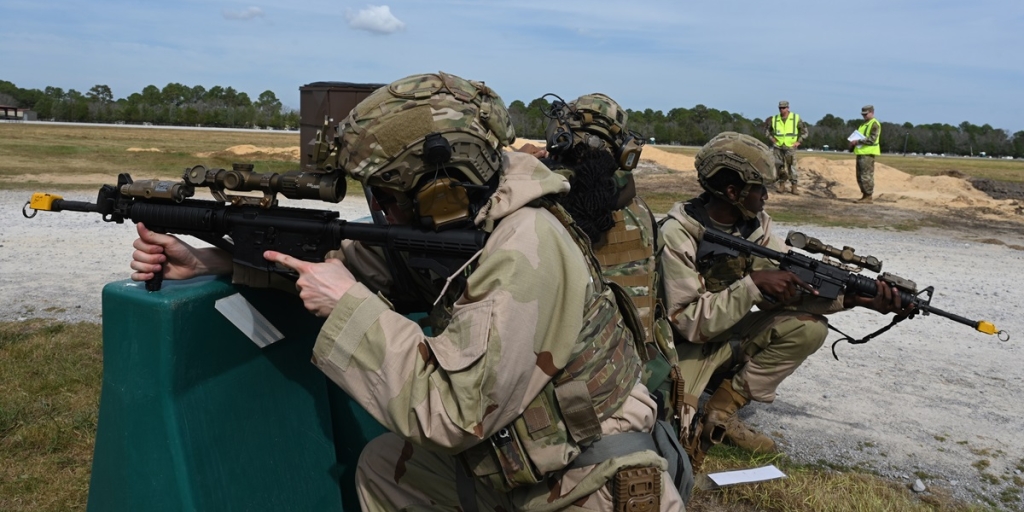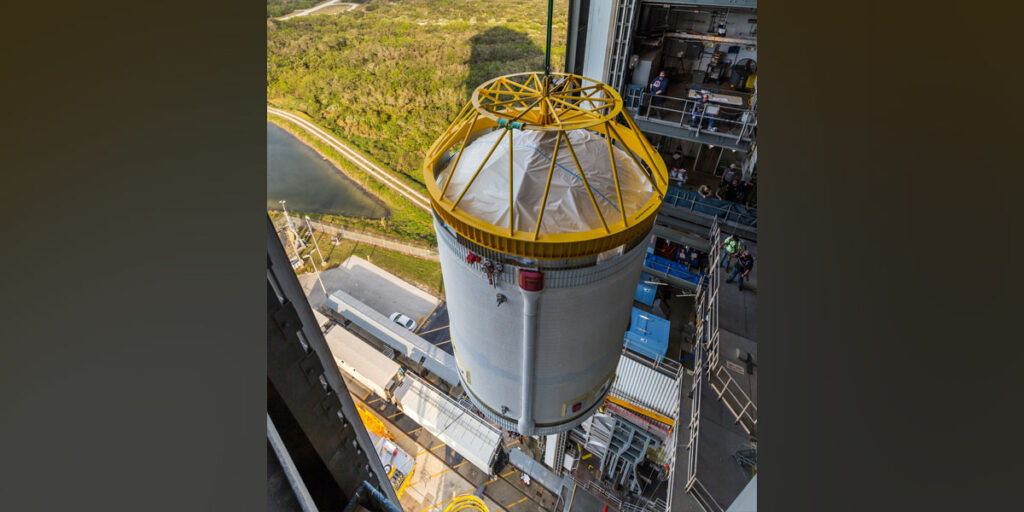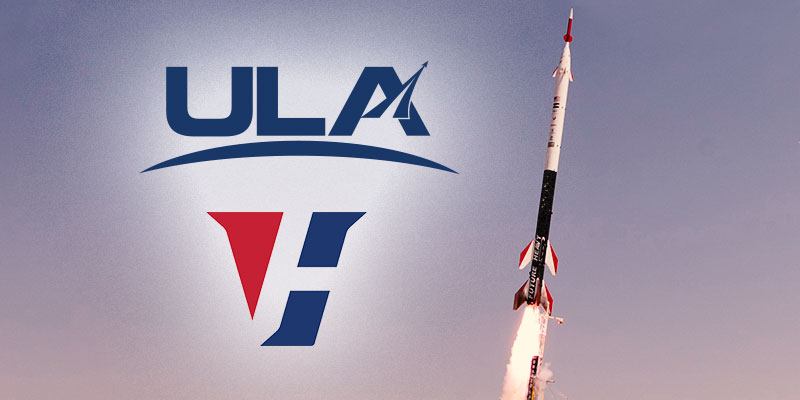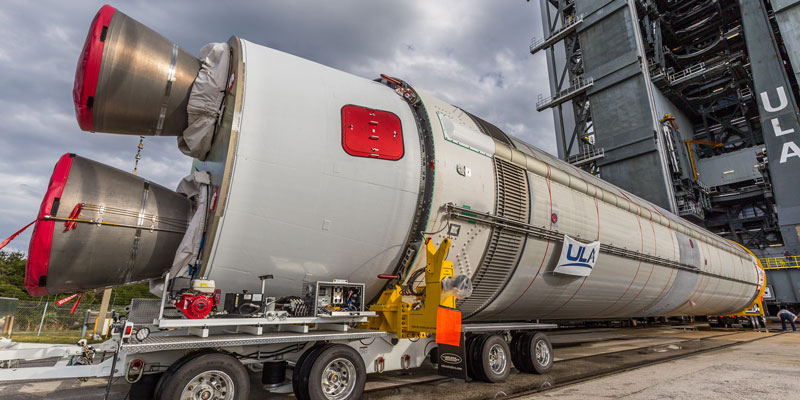A skyward glance on a clear night for most people means a glimpse toward a place with actual peace and quiet, a place free from the type of conflict and demonstrations of force arising frequently around the globe.
Looks can be deceiving, though, according to two experts who spoke at last week’s Aspen Security Forum in Colorado.
Tory Bruno, president and CEO of Alabama rocket builder United Launch Alliance (ULA), and former Air Force Secretary Heather Wilson both concluded that the sought-after edge in modern warfare has driven a frenetic race among nations to control space.
Appearing with Bruno on a panel at the event hosted by the Aspen Institute, Wilson emphasized that America’s national security has become dependent on the use of satellites given the advanced technology of warfare.
“The United States is the best in the world at space – and our adversaries know it,” pronounced Wilson.
Which is why our nation’s foreign adversaries are working to deny America the use of space.
She said China and Russia have been “developing the capability” to interfere with or destroy American military satellites “in order to influence military operations on the ground.”
The potential for interference has sharpened the military’s approach to protecting the nation’s interests in space.
“Our responsibility is to look at the threat, to develop the strategies and the programs to be able to prevail should war extend to space,” Wilson outlined.
Bruno sees access to space as essential for the country to maintain its position of strength.
“We have the most capable space assets in the world,” he said. “We have the most capable and powerful military in the world.”
Bruno pointed out that while the U.S. military is not the largest in the world, “it is the most capable because it is enabled by space.”
He said other nations seeking to weaken the U.S. military are attempting to take space away because that is a far easier approach than conventional warfare.
“We have not recognized that threat until recently and so we are far behind countering that threat,” he warned. “We will catch up. This country has the most capable technological workforce in military on this planet. We absolutely will prevail but right now we are behind in the race, and it’s going to take some serious and hard work to fix that.”
As an example of ways other countries are developing strategies to interfere with satellite technology, Wilson drew attention to China’s launch of a missile the size of a telephone pole to destroy a dead weather satellite and Russia’s launch of a maintenance satellite with a grappling arm. Wilson wondered aloud why Russia would need a satellite equipped with such a device in the absence of any Russian satellites requiring maintenance. In addition to China and Russia, she identified India as a country capable of interfering with satellite functions.
What’s at stake?
The Air Force has 80 satellites in use, the Navy has 13 and the National Reconnoissance Office has 40 — the smallest the size of a toaster and the biggest the size of a school bus.
Of the 80 Air Force satellites on orbit, 33 are Global Positioning System (GPS) satellites, a fact which allowed Wilson to quip, “The blue dot on your phone is not provided by your cellphone company; it comes from the United States Air Force.”
She elaborated that the Air Force provides GPS coordinates for about 1 billion people every day and enables an $80 billion piece of our economy. With its satellites, the Air Force takes pictures, gathers intelligence, facilitates global communication, monitors weather and conducts the critical task of providing timing signals for the New York Stock Exchange and every ATM in America.
As part of intelligence gathering, satellites provide missile warnings. When North Korea launches a missile, American satellites gather the intel. Wilson informed that the satellites stare at the earth and use infrared technology to identify the hot plumes of gas that come from the end of rockets and then calculate the trajectory and warn the national command authority.
Wilson believes the importance of these activities raises some critical questions moving forward.
“What are the capabilities that we need to have in crisis or war?” she asked. “How will we think about interference with commercial assets on orbit, in particular? Is there more to do? You bet. Particularly when it comes to changing the culture of the institution of space warfighters. From providing a service…to being and thinking like warfighters.”
Having so much at stake will also require drawing a hard line for those seeking to harm American interests, according to Wilson.
“We need to let our adversaries know that there will be consequences for interfering with our satellites in time of crisis,” she said.
What’s next?
Wilson and Bruno recognized the continued building of assets in space as valuable to American interests.
However, based on his expertise as a launch provider, Bruno shared the difficulty that comes with making that happen.
“It is a narrow highway to space,” he said. “So all of those critical assets have to get there on top of a space launch vehicle – which is in itself a technological marvel. A 30-story building that blasts itself into space with an incredibly delicate space craft on top.”
He sees ULA’s participation in the Air Force’s national security launch program, a program to develop new and innovative rockets, as helping to bolster the nation’s space assets.
“We will have access to space that is so much more agile, so much more flexible,” he remarked.
He considers it a program designed to confront “the tremendous strategic challenge of a contested environment in space.”
This is the same program numerous members of Alabama’s congressional delegation have fought to preserve. ULA was one of three companies awarded contracts as part of the public-private partnership.
An effort popped up in Congress to scrap the program in order to allow companies who lost out in the first round of awards to get a second bite at the apple.
Bruno’s view is that opening the process back up to companies who failed to win an award in the first go-round would run counter to the spirit of the competitive process.
“It’s not competition if everybody gets an award,” he remarked.
In the meantime, Bruno expressed excitement for his company’s progress on the new rocket, including the start of fabrication.
And Wilson observes significant progress with how the nation’s leaders have reacted to the competition for space.
She recalled crafting an opening statement for her confirmation hearing which had ‘space’ and ‘warfighting’ in the same sentence. While reviewing it with an Obama administration holdover, the official proceeded to strike it out based upon the policy that those two subjects should not be discussed together. According to Wilson, she told them, “‘You’ll have to get somebody more senior to tell me to take it out.’”
Having left her post as secretary on May 31, Wilson will assume the president’s office at the University of Texas at El Paso on August 15.
She leaves feeling confident in the direction of America’s national security space program in the face of ever-increasing competition.
“We have come a long way in talking about the threats that are there and the things that we need to do about them,” she concluded.
Tim Howe is an owner and editor of Yellowhammer News




